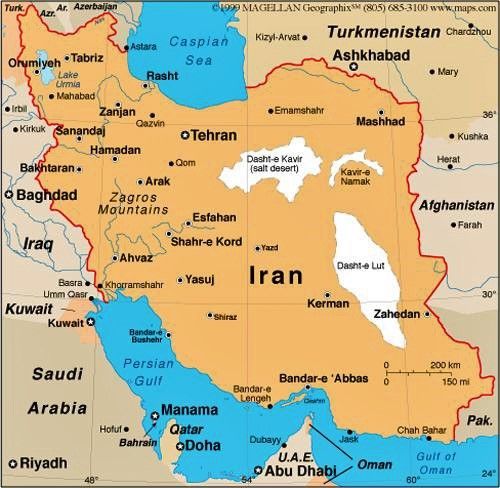Deal backers to limit impact
October 7, 2017 | Expert Insights

US President Donald Trump is expected to decertify the landmark Iran nuclear deal. However , European officials seek to convince Congress not to follow expected White House action with reimposition of sanctions on Tehran.
Background
United States and Iran do not have any formal diplomatic relations or ties. The two nations share an acrimonious relationship. In 1953, the CIA played a key role in orchestrating a coup against Iran's democratically elected Prime Minister, Mohammad Mossadeq. Between 1979 and 1981, a group of Iranian students belonging to the Muslim Student Followers of the Imam's Line, took over the U.S. Embassy in Tehran. The 44 hostages were released after 444 days. In 2002, US President, George W Bush, described Iran as being part of the “axis of evil.”
Iran ratified the Non-Proliferation Treaty (NPT), making its nuclear program subject to the IAEA's verification in 1970. In the 2000s, reports emerged that Iran was secretly expanding its uranium enrichment program raising concerns among the international community. The IAEA launched an investigation in 2003 after an Iranian dissident group revealed undeclared nuclear activities carried out by Iran.
Since 1969, the US has imposed crippling economic sanctions against Iran. The sanctions increased when the UN passed a resolution of fresh sanctions against Iran after the latter refused to suspend its uranium enrichment program in 2006.
On 2 April, 2015, the P5+1 and Iran reached a provisional agreement that sought to lift most of the sanctions in exchange for limits on Iran's nuclear programs extending for at least ten years. When the International Atomic Energy Agency (IAEA) certified that Iran had restricted its sensitive nuclear activities, the UN sanctions were lifted on January 16, 2016.
Iran is an oil-rich country and many companies have flocked to the region since the sanctions have been lifted.

Analysis
US President Donald Trump has been a frequent critic of the nuclear deal. He once deemed it an embarrassment to America. In the recent months, the administration began hinting that it would pull out from the deal. However, the IAEA has said that Iran was in compliance of the deal. The European Union diplomats have turned their focus on Capitol Hill , where the Congress would have two months to decide whether to reimpose sanctions on Iran or leave the 2015 nuclear agreement intact. The US has spoken in favor of honoring the deal. French President Macron has signaled his goal of ensuring that the deal remains intact. He has warned that pulling out the treaty, Iran could become untethered and pose a similar threat as North Korea.
However, the Washington Post has reported that Trump expects to decertify the deal. He said, “The Iranian regime supports terrorism and exports violence, bloodshed, and chaos across the Middle East. That is why we must put an end to Iran's continued aggression and nuclear ambitions. They have not lived up to the spirit of their agreement."
The President’s decision is not in line with the top members of his administration. "Absent indications to the contrary, (the Iran deal) is something that the president should consider staying with," Defense Secretary Mattis told a Senate Armed Services committee.
Trump will be announcing his decision on October 15th, 2017. If he chooses to decertify, then it will be up to the Congress on whether it will re-impose economic sanctions on Iran.
Critics have argued that this move would jeopardize the security of the nation. Democratic House Caucus Chairman Joseph Crowley of New York said, “By not certifying Iran's compliance, even after the International Atomic Energy Agency confirmed that Iran is implementing its commitments, President Trump would jeopardize our security and national interests. It is clear that President Trump is focused more on continuing his campaign rhetoric than keeping Americans safe."
Assessment
Our assessment is that Trump’s decision to decertify the nuclear deal could be the President trying to appease his base. He is now leaving it up to the Congress to decide on the next move; thus absolving himself of the responsibility. However, this move could have dire consequences internationally. European nations including US allies have been champions of the nuclear deal and they have pushed against its decertification.








Comments